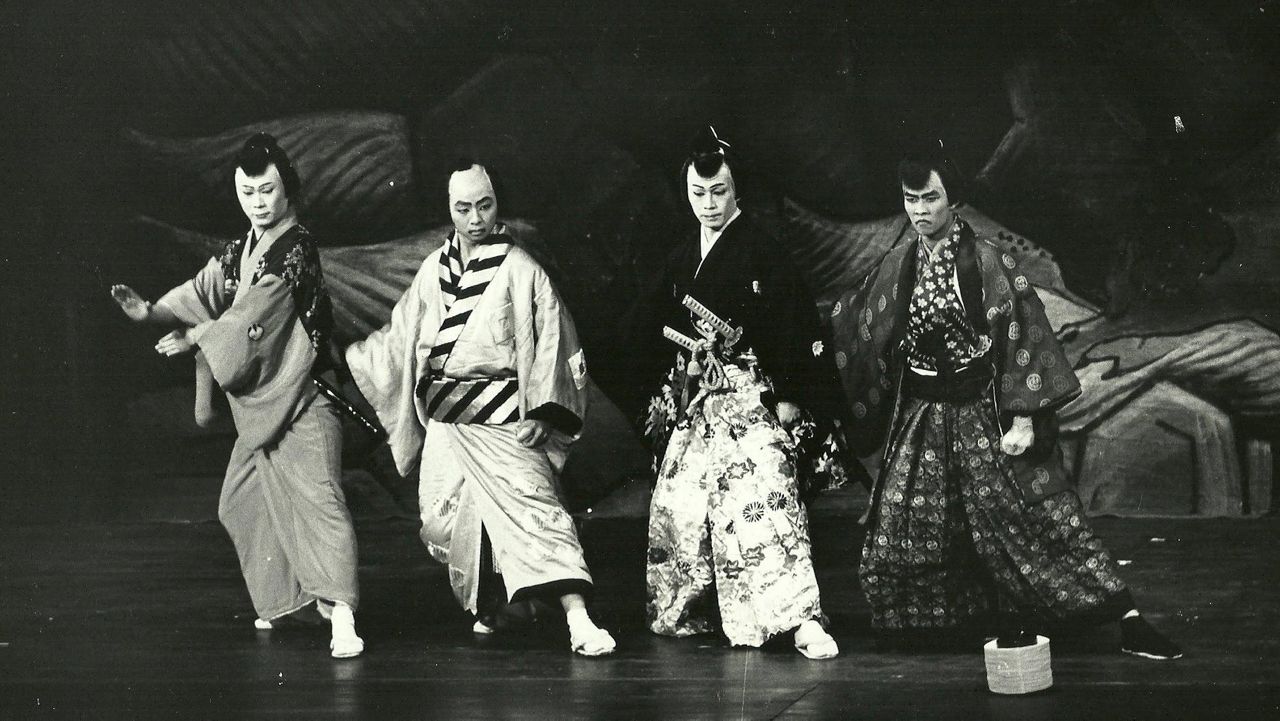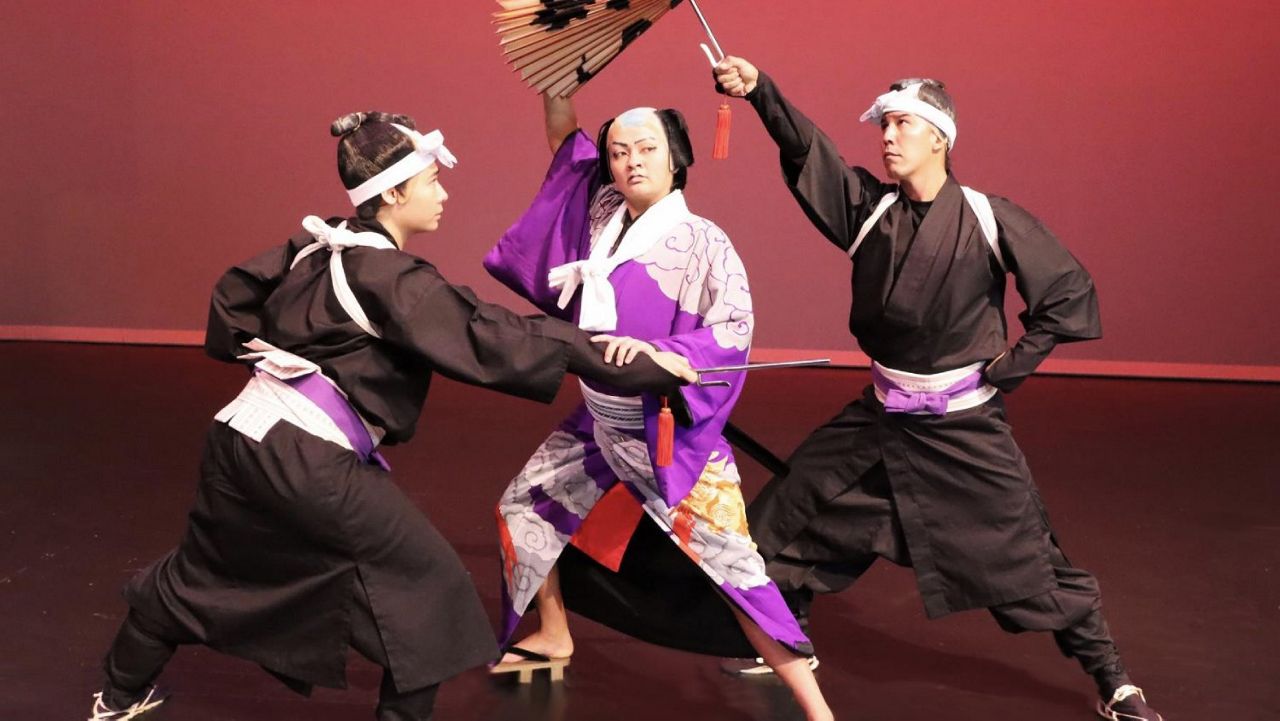HONOLULU — Next year marks the centennial anniversary of the first known English-language kabuki ever performed in Hawaii, “which started at the University of Hawaii at Manoa,” according to a UH news release. The very first kabuki production debuted on-campus in Nov. 1924.
To mark the occasion, the University of Hawaii at Manoa Department of Theatre and Dance invited kabuki artists this spring to mentor students in preparation for the play, “The Maiden Benten and the Bandits of the White Waves,” better known as “Benten Kozo,” set to open in April at Kennedy Theatre.
“They are the masters, so it is absolutely critical that students learn directly from the source rather than through videos and secondhand information,” said Julie Iezzi, a theatre professor at UH Manoa, in the release. Iezzi is overseeing the upcoming production. “We’re really fortunate that actors are willing to come here and work so diligently and for so long with our students.”
Assisting the students are award-winning kabuki actor Monnosuke Ichikawa VIII and two of his apprentices, Utaki Ichikawa and Takisho Ichikawa. Monnosuke was born into one of the oldest acting lineages in kabuki theatre and is an eighth-generation actor in a familial line that traces its roots in kabuki to 1713.
Through an interpreter, Ichikawa said, “Something that I would like students to learn from this kabuki project is, first of all, the charm and appeal of kabuki as an artform. It is often said that meaningful experiences nurture budding aspirations, so I want them to get that from this process.”
In doing so, the 40-member cast will first learn the play in Japanese to comprehend the proper tone and rhythm of kabuki in which it is traditionally performed. The play will be performed in English.
MFA theatre for youth student/actress Karese Kaw-uh will perform in one of the plays’ starring roles.
“To be able to learn from them in this capacity, it’s nothing like I would have ever experienced elsewhere before. It’s a little nerve racking but also more than that, it’s just this chance to grow,” said Kaw-uh, who made the move to Hawaii after learning about UH Manoa’s internationally recognized Asian theatre program.
Honolulu-born shamisen musician and guest artist Kineya Sakio is working with students and faculty who will play in the production’s live ensemble.
“The Maiden Benten and the Bandits of the White Waves” opens April 19, 20, 26 and 27 at 7:30 p.m. and April 28 at 2 p.m. Tickets range from $8-$25.

Designed by internationally renowned architect I.M. Pei, Kennedy Theatre will celebrate its 60th season in 2024. “Benten Kozo” holds a special place in the theatre’s history as it was the kabuki play that opened Kennedy’s doors on Dec. 4, 1963.
Of special note, Kennedy Theatre is the only theatre in the nation designed with removable seats to accommodate “hanamachi,” a unique stage extension used by kabuki actors to enter and exit the stage during performances.
Iezzi is also set to unveil a historical exhibit in January, “Kabuki in Hawaii: Through Time and Space,” at the East-West Center Gallery that will take viewers on a 130-year journey of kabuki in Hawaii.
Sarah Yamanaka covers events, environmental and community news for Spectrum News Hawaii. She can be reached at sarah.yamanaka@charter.com.



